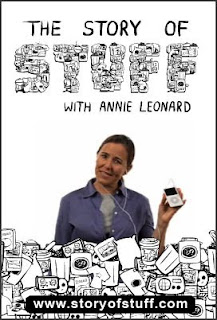
If Dr. Marion Nestle (pronounced aptly like the verb meaning "to nurture" as opposed to the name of the food company) could teach the American public one thing, it might be that larger portions equal more calories. Alas, that is not as easy as it sounds.
Being healthy, Dr. Nestle, the author of Food Politics (which Kristin reviewed earlier) and What to Eat who spoke on campus yesterday for the Ellen Catherine Gstalder Memorial Lecture, explains, isn't difficult to do. In reality, it's quite straightforward: Eat less, move more, eat more fruits and vegetables, don't eat junk food, and enjoy your food. However, with the barrage of corporate messaging we see today about the health miracles performed by everything from your peanut butter hyped up on omega 3s to your Immunity Rice Krispies, a trip around the supermarket can become a mix of cognitive dissonance and visual overload.
How, though, did we get to be where we are today?
Dr. Nestle spent most of her early career focusing specifically on nutrition; however, she has with time realized that we need a more systematic or holistic approach to understanding our food, one uniting agriculture, food, nutrition, and public health (obesity, hunger, food safety).
She traces back the issue of obesity to the early 1980s, noting four major changes that have influenced the American diet. First is agricultural policy. In the 1970s, farm policy shifted; rather than paying farmers not to grow, the government began paying them to grow as much as possible. Something had to be done with all of that excess food, right?
Second was the wave of deregulation that came with the Reagan administration. With this wave came an increased marketing to children from corporations. This sector grew from $4.2 billion in 1980 to $40 billion in 2010. Granted, not all of this is food-based, but just turn on Nickelodeon or the Disney Channel and count how many sugary snacks or breakfast cereals you see in the commercials. It's not hard to see.
The third factor cited is an increase in women working outside the home. Dr. Nestle, however, notes that this gets overemphasized too much because the trend had already been started in the 1960s, decades before the obesity epidemic hit.
Last but not least was the shareholder value movement. In 1981 Jack Welch of GE changed the dynamic of Wall Street, pushing for immediate return rather than consistent return over time. Food companies, then, had to sell a lot more in order to grow.
Over that same span of time, the price of fruits and vegetables has seen a steady increase (relative to inflation), and the prices of beer, butter, and soda have all fallen drastically. Not the formula for a healthy public, is it?
The information we are being fed along with the food has changed, too. Health claims on food were not possible before 1990, when the Nutrition Labeling Act was passed. Food companies, consequently, could say whatever they wanted to on their products regardless of the existence or nonexistence of scientific evidence to back up their claims. This has been upheld by courts out of a gross corruption of the First Amendment. Dr. Nestle aptly noted that when she was in school, she learned that the founding fathers included this in the Bill of Rights to protect the freedom of religious and political speech, not the freedom of corporations to lie to us about their products.
There is, however, some hope in the future. Dr. Nestle was very optimistic about Michelle Obama's commitment to this issue with her Let's Move campaign. Moreover, the health care legislation included an amendment mandating that all chain restaurants release nutritional information on their menus.
What does she recommend that we do, both as consumers and as citizens?
As a consumer (i.e. personal responsibility), you can buy food, not "products," you can make your own food or even grow your own food, and you can teach your children about where food comes from.
One of the best pieces of advice I can personally give about making sure that what you are eating is actually "food" is to look at the ingredient list. If you were given all of those items separately, could you put it back together? Could you take those monoglycerides, diglycerides, triglycerides, hydrolyzed vegetable protein, natural and artificial flavors, xanthum gum, dyes for every color of the rainbow, and make food out of it? Probably not. Stick to what you know and can pronounce.
Also, your food should be rich in color, naturally occurring color that is. I have always attempted to make my plate look as attractive as possible and have always gotten comments from friends about how colorful and crafted my salads look. Just look at the photo above of Marion Nestle from her Food Politics blog and try to tell me that the array of yellow, red, and orange does not catch your eye.
As a citizen, moreover, we must advocate for more nutritious school lunches, more access to sustainable food, and regulations on marketing lies and campaign financing.
In the words of Michelle Obama, then, LET'S MOVE!

